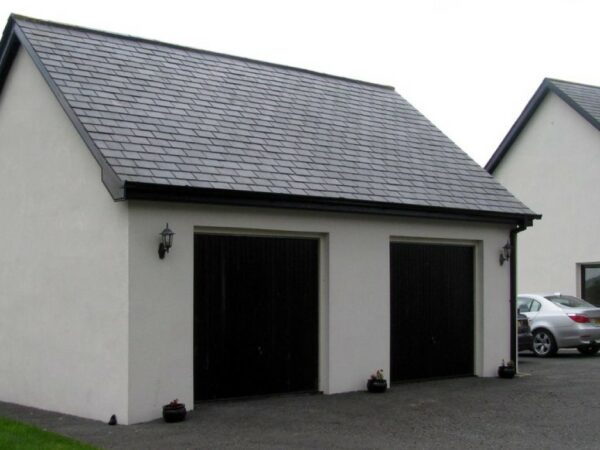Choices For Your Roofing
In addition to the various types and sizes, roofs also come in many different materials. From thatched roofs to metal roofs, tiled roofs to green roofs, the options today are vast when it comes to your residential or garage roofing.
Each roofing material has various advantages and disadvantages. The following guide will serve to highlight the pros and cons of each material and make your purchasing decision a whole lot easier.
Metal roofing
Thanks to increasing availability, metal roofing can be found on many conventional properties, in addition to high-end luxury homes. Zinc roofing, slate roofing and copper roofing are all examples of metal roofing.
Pros:
- Metal is lightweight, so it can be applied to roofs that have a low load-bearing capacity
- Has a 30+ year life expectancy
- Fire-resistant
- Distinctive contemporary look
- Can be manufactured into any shape or design
- Requires almost no maintenance
Cons:
- Can be expensive compared to alternative materials
- Collects a lot of heat and can make your home uncomfortably warm
- Is easily dented by hail and other heavy falling objects
Green roofing
Green roofs are an eco-friendly alternative to modern roofing options. They are either partially or completely covered in vegetation and plants, and provide a range of benefits, including a unique green aesthetic.
Pros:
- Unique visual dimension
- Sound insulation
- Temperature regulation
- Improved air quality
- Rainwater retention
- Increased biodiversity
Cons:
- They require a lot of regular maintenance
- Because green roofing is so new, life expectancy is as yet unproven
- Heavier and require more structural support to be implemented
- Relatively expensive
Tiled roofing
Roof tiles are traditionally made out of locally-available materials. Two of the most popular roof tile materials are concrete and clay, but terracotta and slate are also common.
Pros:
- Requires little maintenance
- Fire-resistant
- 50+ years life expectancy
- Distinctive styles and colours
- Impervious to rot and insect damage
- Environmentally friendly
Cons:
- They are heavy; they require sufficient load-bearing capacity in the roof structure
- High cost
- Can be broken if they suffer a heavy impact
Concrete roofing
Concrete roofing is available as individual tiles or one single solid slab. Many homeowners opt for tiles for the aesthetic, but solid concrete roofs are cheaper and easier to install.
Pros:
- Relatively inexpensive — concrete is cheaper compared to clay
- Extremely strong — can withstand intense wind and storms
- Resistant to wind uplift
Cons:
- The colour will fade over time
- It is very heavy and requires a roof structure with sufficient load-bearing capacity
Clay roofing
Another popular roof tile material, clay has been used in roofs for thousands of years. They have survived this long because of their timeless aesthetic.
Pros:
- Life expectancy of over 100 years.
- Extremely strong — can withstand intense wind and storms
- Impervious to rot and insect damage
- Requires little maintenance
- They can be recycled after removal, making them good for the environment
Cons:
- Difficult installation
- High cost
- Brittle
Thatched roofing
Thatched roofing is common for cottages but will rarely be used in new builds. Most thatchers exist solely for restoration work.
Pros:
- Unique look
- Environmentally friendly
- Provides insulation
Cons:
- Expensive
- Requires frequent attention
- Not fire-resistant
Asphalt shingles
Asphalt shingles are the most common type of roofing material and mostly used in America. Despite their name, asphalt shingles contain very little asphalt — sometimes as low as 5%. Most of their composition is made up of mineral fibre. No-one really uses them in the UK as the British weather would play havoc with them.
Pros:
- Asphalt roofing is inexpensive
- Requires little to no maintenance compared to other material choices
- Fire-resistant
- Low cost
- Environmentally friendly
Cons:
- Subject to curling and splitting
- Lasts only between 20-40 years, which isn’t as much as alternatives
- Brittle when cold
- Heavy

